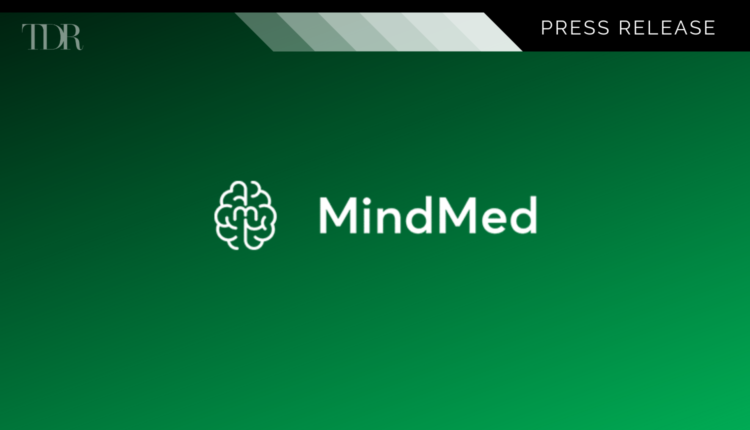
MindMed Announces the Approval of Mescaline Study
MindMed (NASDAQ: MNMD) (NEO: MMED), a leading clinical stage psychedelic medicine company, announced today the approval by the local Swiss ethics committee of the first clinical trial evaluating the acute effects of different doses of mescaline and the role of the serotonin 5-HT2A receptor in mescaline-induced altered states of consciousness (MDR-Study). The study will be conducted at the University Hospital Basel Liechti Lab, in Basel, Switzerland, and is planned to start this month.
Mescaline is a classic serotonergic hallucinogen, similar to LSD psilocybin, with a long, non-regulated history of spiritual use. However, modern regulated studies using validated psychometric tools and directly comparing different doses of mescaline including placebo are missing. We believe this phase 1 study will provide such data and an important basis for further research in the therapeutic potential of mescaline.
Mescaline is an archetypical psychedelic with surprisingly little contemporary scientific information on its pharmacology and effects in humans. This study will, we believe, provide the first modern research data on mescaline regarding dosing and mechanism of action in humans.
Dr. Matthias Liechti, PhD & M.D., professor for clinical pharmacology and internal medicine at the University of Basel
The serotonin 2A (5-HT2A) receptor is thought to primarily mediate acute alterations of consciousness induced by LSD and psilocybin. Mescaline also binds to the 5-HT2A receptor with lower potency and higher activity compared to LSD. The present study will also explore the mechanism of action of mescaline in humans and specifically whether the acute psychoactive effects of mescaline in humans are mediated by 5-HT2A receptors.
Compared with LSD and psilocybin, relatively high doses of 300-800 mg mescaline are needed to produce a prototypical hallucinogenic experience. Whether there are differences in the effects of mescaline compared with those of LSD or psilocybin will also be determined in additional studies.
The present study will primarily help to characterize the subjective effects of different doses of mescaline using modern psychometric outcome measures. It will also explore the role of the 5-HT2A receptor in mescaline-induced altered states of consciousness using the 5-HT2A receptor blocker ketanserin prior to the administration of a high dose of mescaline.
The study will use a double-blind, placebo-controlled, cross-over design with six different dosing conditions. The treatment order will be randomized and counter-balanced.
Dr. Miri Halperin Wernli, President of MindMed, added, “At present there are no modern studies that we are aware of using validated psychometric outcome measures that directly compare different doses of mescaline. With our rigorous clinical trial, we aim to characterize the subjective effects of different doses of mescaline and provide a description of the acute mescaline effects to help clarify the involvement of the 5-HT2A receptor in mescaline-induced altered states of consciousness in healthy people. We believe the drug will have a powerful effect on enhancing the communication between different parts of the brain in unique ways that are otherwise inaccessible to the conscious mind. As we move forward, further studies on patient populations will be targeted to help us distinguish the relationship between the drug-induced experience and its integration into the psychotherapeutic process. The hope is that this will then allow a better understanding of the behavioral changes and the unique effect of these powerful drugs on neuroplasticity.”
To view the original press release in its entirety click here



